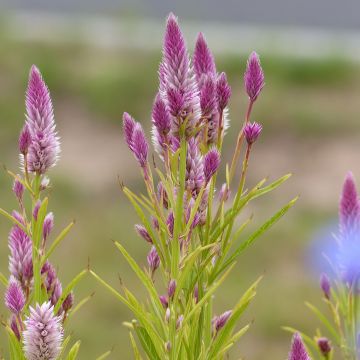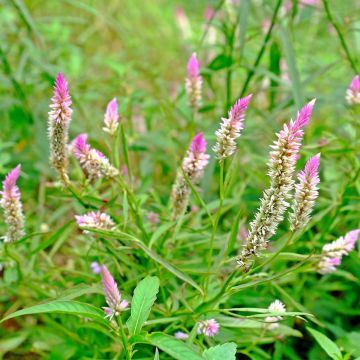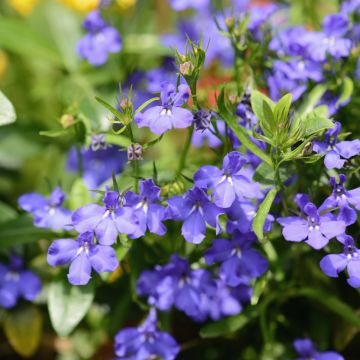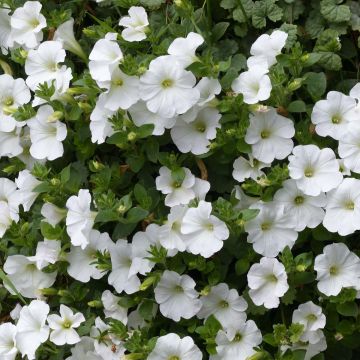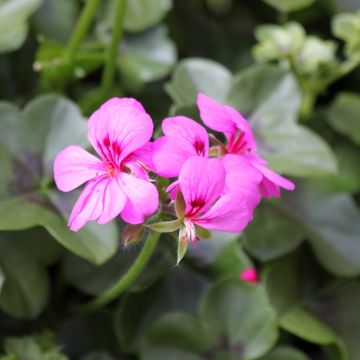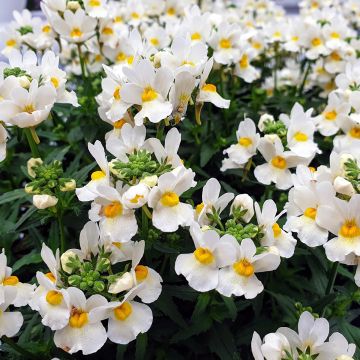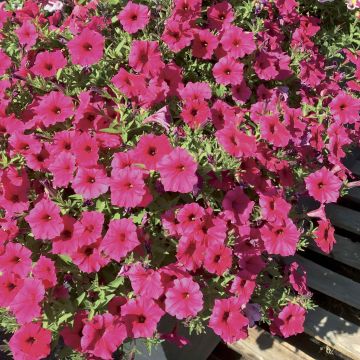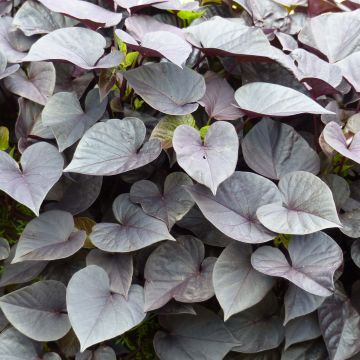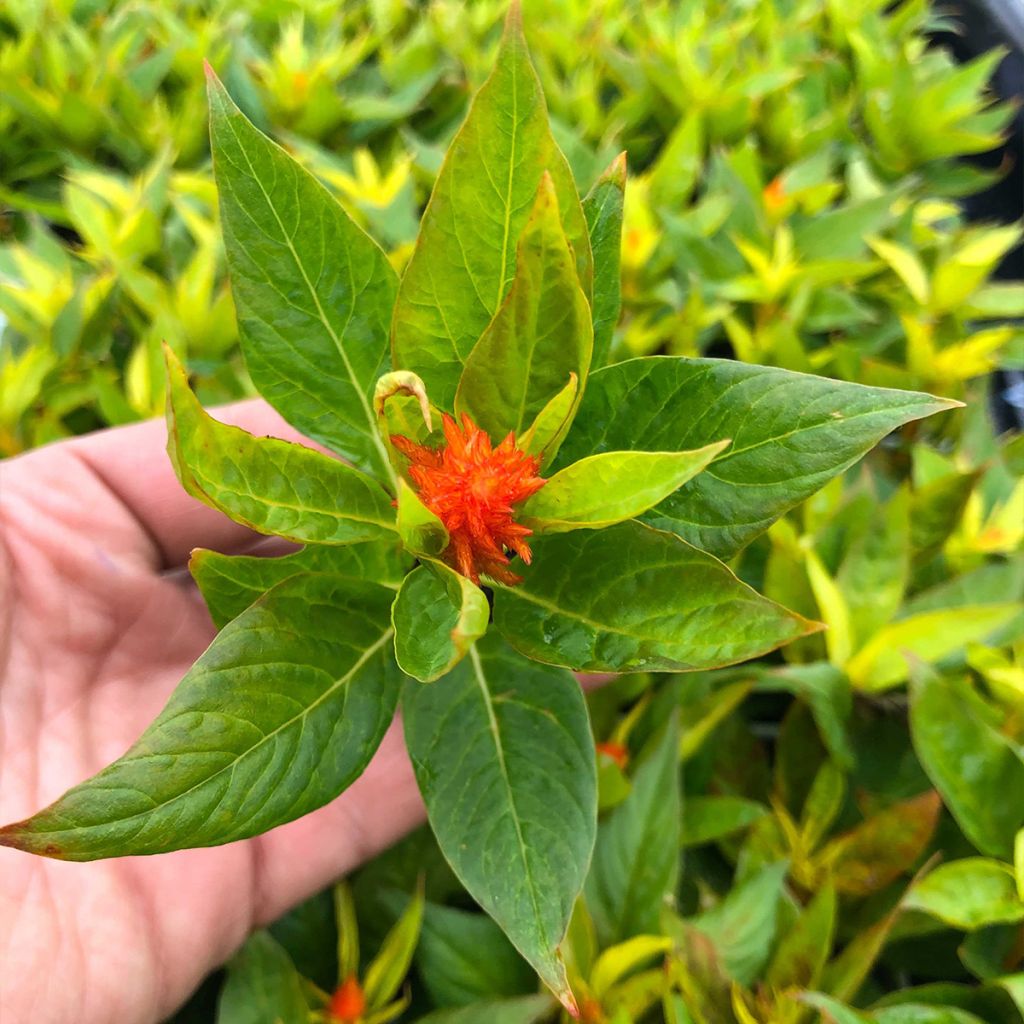

Celosie Kelos Fire Orange Mini-mottes
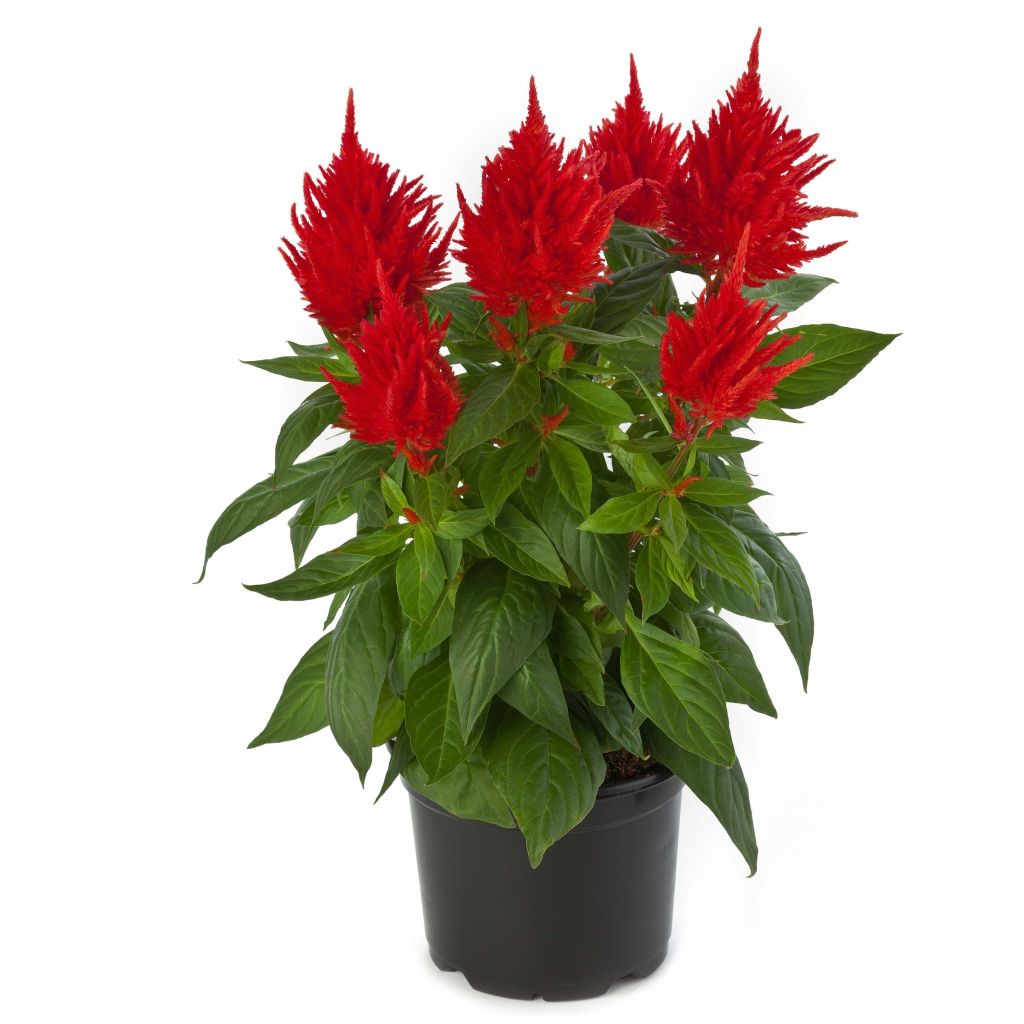

Celosia Kelos Fire Orange - Silver cock's comb
Celosia Kelos Fire Orange - Silver cock's comb
Celosia argentea var. plumosa Kelos Fire Orange
Silver Cock's Comb, Flamingo Feather, Wheat Celosia
Special offer!
Receive a €20 voucher for any order over €90 (excluding delivery costs, credit notes, and plastic-free options)!
1- Add your favorite plants to your cart.
2- Once you have reached €90, confirm your order (you can even choose the delivery date!).
3- As soon as your order is shipped, you will receive an email containing your voucher code, valid for 3 months (90 days).
Your voucher is unique and can only be used once, for any order with a minimum value of €20, excluding delivery costs.
Can be combined with other current offers, non-divisible and non-refundable.
Home or relay delivery (depending on size and destination)
Schedule delivery date,
and select date in basket
This plant carries a 6 months recovery warranty
More information
We guarantee the quality of our plants for a full growing cycle, and will replace at our expense any plant that fails to recover under normal climatic and planting conditions.
Would this plant suit my garden?
Set up your Plantfit profile →
Description
The Celosia Kelos Fire Orange is a compact and highly floriferous variety of feathery celosia in summer. Its inflorescences, which resemble flames both in shape and in reddish-orange colour, crown a beautiful cluster of leafy stems in a vibrant green that perfectly highlights them. A tender perennial, this plant is grown as an annual in a sunny location, in rich and moist soil. It adds a real panache to flower beds, borders, and flower pots! To accompany it, choose plants with a more restrained appearance, with light flowers and foliage.
The Feathery Cockscomb, scientifically known as Celosia argentea plumosa, is also called the Velvet Flower. It belongs to the Amaranthaceae family and is a relative of both fox-tail amaranths and beets. The wild species is native to Central and South America. A tender herbaceous perennial, it is cultivated as an annual in our latitudes. It has given rise to numerous cultivars, including the Plumosa group, with feathery flowers, to which the Kelos Fire Orange variety belongs.
In just 9 to 10 weeks, the Celosia Kelos Fire Orange forms a cluster of leafy stems that barely reach 40 cm (16in) in height, with a spread of 45-50 cm (18-20in). The flowering, which is spectacular, begins in June-July and continues until September. At the tips of the stems, conical spikes shaped like plumes emerge above the foliage. They consist of small flowers surrounded by feathery bracts in vivid and vibrant colours. These shimmering spikes create an eruption of colours with an uncommon vivacity, capable of energizing any flower bed. The leaves of the celosia are large, with a tangy green colour. They are broad and lanceolate, arranged alternately on the stems, and edible.
The Celosia Kelos Fire Orange is perfect for fresh or dried bouquets, especially since the flower retains its beautiful colours for a long time. To dry the flowers, hang them upside down in a shady place for two months. In flower beds, borders, or large flower pots, you can associate it with ivy, common lady's mantle, or fennel, which will enhance its plumes and temper its flashy colors. You can also mix different varieties of feathery celosias, playing with colours.
The leaves and seeds are used as vegetables in Latin America. The plant also has medicinal properties, particularly as a hemostatic (it stops bleeding).
Note: Please be aware that our young plug plants are professional products intended for experienced gardeners: upon receipt, transplant and store them in sheltered areas (veranda, greenhouse, cold frame) at a temperature above 14°C (57.2°F) for a few weeks before placing them outdoors once the risk of frost has passed.
Report an error about the product description
Celosia Kelos Fire Orange - Silver cock's comb in pictures




Flowering
Foliage
Plant habit
Botanical data
Celosia
argentea var. plumosa
Kelos Fire Orange
Amaranthaceae
Silver Cock's Comb, Flamingo Feather, Wheat Celosia
Cultivar or hybrid
Other Celosias
View all →Planting and care
The Kelos Fire Orange Celosia appreciates the heat, you will plant it in full sun and grow it outdoors, in the ground or in pots, after the frosts. In the meantime, you can let the young plants grow in individual pots, in a rich and light soil kept slightly moist. Transplant them, spacing them 25 to 30 cm (10 to 12in) apart. The Celosia should not lack water throughout the growth and flowering period. In pots, apply flowering plant fertilizer every 15 days. Remove faded flowers as they appear.
At the end of autumn, you can pull up the Celosia plants or move them to a bright, frost-free location to spend the winter.
Planting period
Intended location
Care
This item has not been reviewed yet - be the first to leave a review about it.
Similar products
Haven't found what you were looking for?
Hardiness is the lowest winter temperature a plant can endure without suffering serious damage or even dying. However, hardiness is affected by location (a sheltered area, such as a patio), protection (winter cover) and soil type (hardiness is improved by well-drained soil).

Photo Sharing Terms & Conditions
In order to encourage gardeners to interact and share their experiences, Promesse de fleurs offers various media enabling content to be uploaded onto its Site - in particular via the ‘Photo sharing’ module.
The User agrees to refrain from:
- Posting any content that is illegal, prejudicial, insulting, racist, inciteful to hatred, revisionist, contrary to public decency, that infringes on privacy or on the privacy rights of third parties, in particular the publicity rights of persons and goods, intellectual property rights, or the right to privacy.
- Submitting content on behalf of a third party;
- Impersonate the identity of a third party and/or publish any personal information about a third party;
In general, the User undertakes to refrain from any unethical behaviour.
All Content (in particular text, comments, files, images, photos, videos, creative works, etc.), which may be subject to property or intellectual property rights, image or other private rights, shall remain the property of the User, subject to the limited rights granted by the terms of the licence granted by Promesse de fleurs as stated below. Users are at liberty to publish or not to publish such Content on the Site, notably via the ‘Photo Sharing’ facility, and accept that this Content shall be made public and freely accessible, notably on the Internet.
Users further acknowledge, undertake to have ,and guarantee that they hold all necessary rights and permissions to publish such material on the Site, in particular with regard to the legislation in force pertaining to any privacy, property, intellectual property, image, or contractual rights, or rights of any other nature. By publishing such Content on the Site, Users acknowledge accepting full liability as publishers of the Content within the meaning of the law, and grant Promesse de fleurs, free of charge, an inclusive, worldwide licence for the said Content for the entire duration of its publication, including all reproduction, representation, up/downloading, displaying, performing, transmission, and storage rights.
Users also grant permission for their name to be linked to the Content and accept that this link may not always be made available.
By engaging in posting material, Users consent to their Content becoming automatically accessible on the Internet, in particular on other sites and/or blogs and/or web pages of the Promesse de fleurs site, including in particular social pages and the Promesse de fleurs catalogue.
Users may secure the removal of entrusted content free of charge by issuing a simple request via our contact form.
The flowering period indicated on our website applies to countries and regions located in USDA zone 8 (France, the United Kingdom, Ireland, the Netherlands, etc.)
It will vary according to where you live:
- In zones 9 to 10 (Italy, Spain, Greece, etc.), flowering will occur about 2 to 4 weeks earlier.
- In zones 6 to 7 (Germany, Poland, Slovenia, and lower mountainous regions), flowering will be delayed by 2 to 3 weeks.
- In zone 5 (Central Europe, Scandinavia), blooming will be delayed by 3 to 5 weeks.
In temperate climates, pruning of spring-flowering shrubs (forsythia, spireas, etc.) should be done just after flowering.
Pruning of summer-flowering shrubs (Indian Lilac, Perovskia, etc.) can be done in winter or spring.
In cold regions as well as with frost-sensitive plants, avoid pruning too early when severe frosts may still occur.
The planting period indicated on our website applies to countries and regions located in USDA zone 8 (France, United Kingdom, Ireland, Netherlands).
It will vary according to where you live:
- In Mediterranean zones (Marseille, Madrid, Milan, etc.), autumn and winter are the best planting periods.
- In continental zones (Strasbourg, Munich, Vienna, etc.), delay planting by 2 to 3 weeks in spring and bring it forward by 2 to 4 weeks in autumn.
- In mountainous regions (the Alps, Pyrenees, Carpathians, etc.), it is best to plant in late spring (May-June) or late summer (August-September).
The harvesting period indicated on our website applies to countries and regions in USDA zone 8 (France, England, Ireland, the Netherlands).
In colder areas (Scandinavia, Poland, Austria...) fruit and vegetable harvests are likely to be delayed by 3-4 weeks.
In warmer areas (Italy, Spain, Greece, etc.), harvesting will probably take place earlier, depending on weather conditions.
The sowing periods indicated on our website apply to countries and regions within USDA Zone 8 (France, UK, Ireland, Netherlands).
In colder areas (Scandinavia, Poland, Austria...), delay any outdoor sowing by 3-4 weeks, or sow under glass.
In warmer climes (Italy, Spain, Greece, etc.), bring outdoor sowing forward by a few weeks.






























